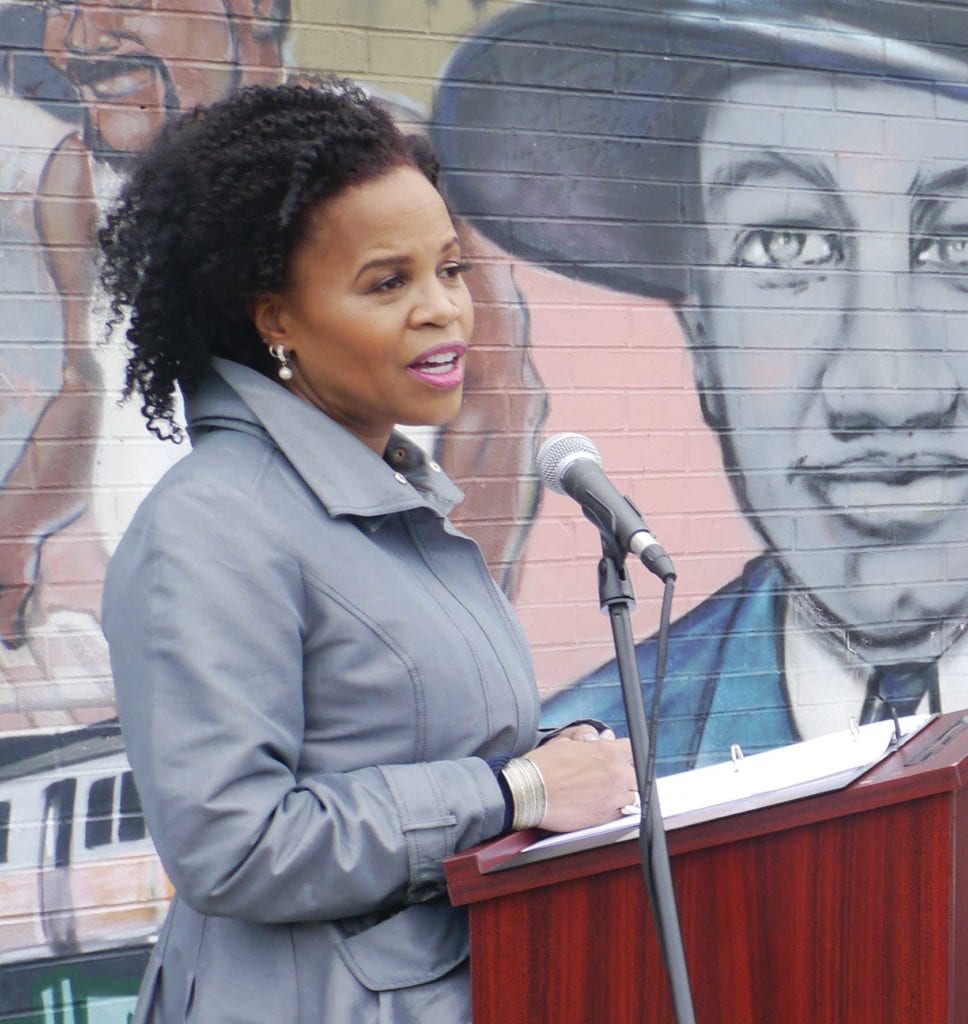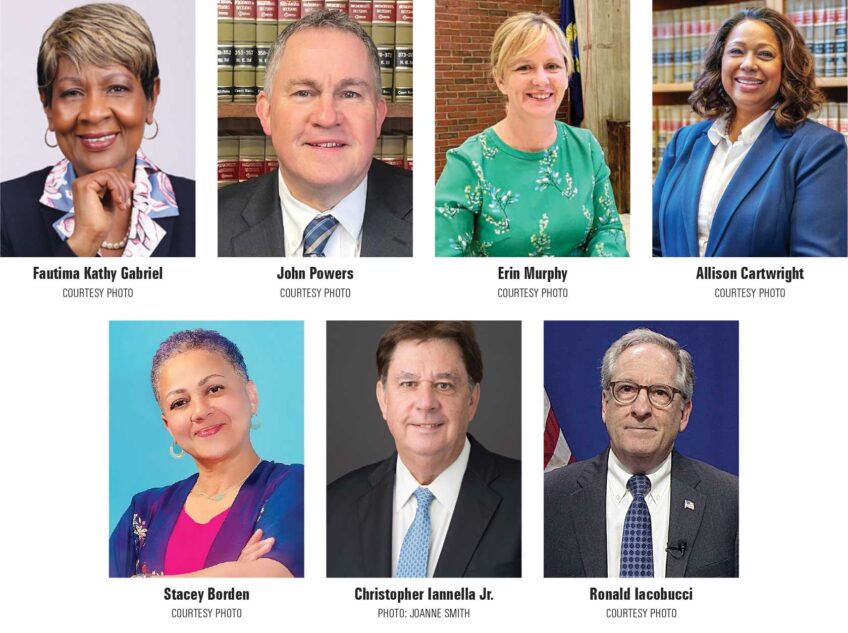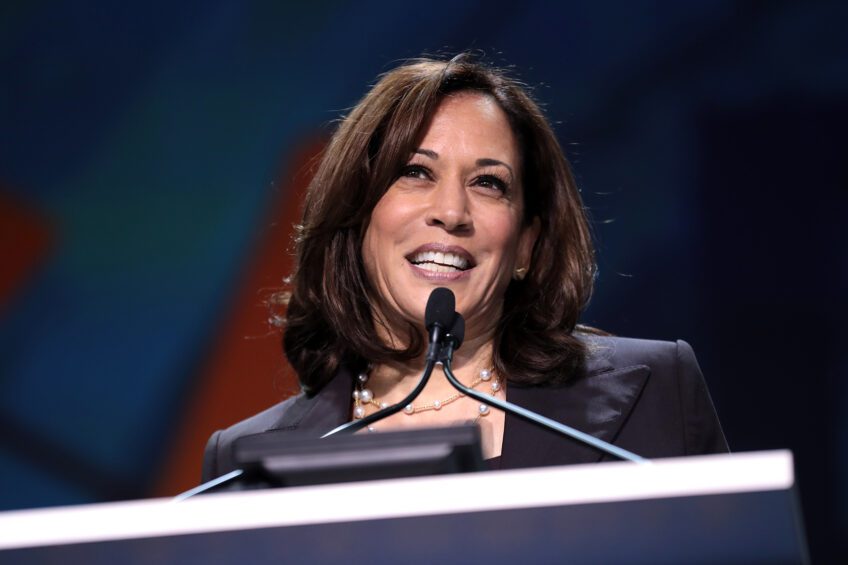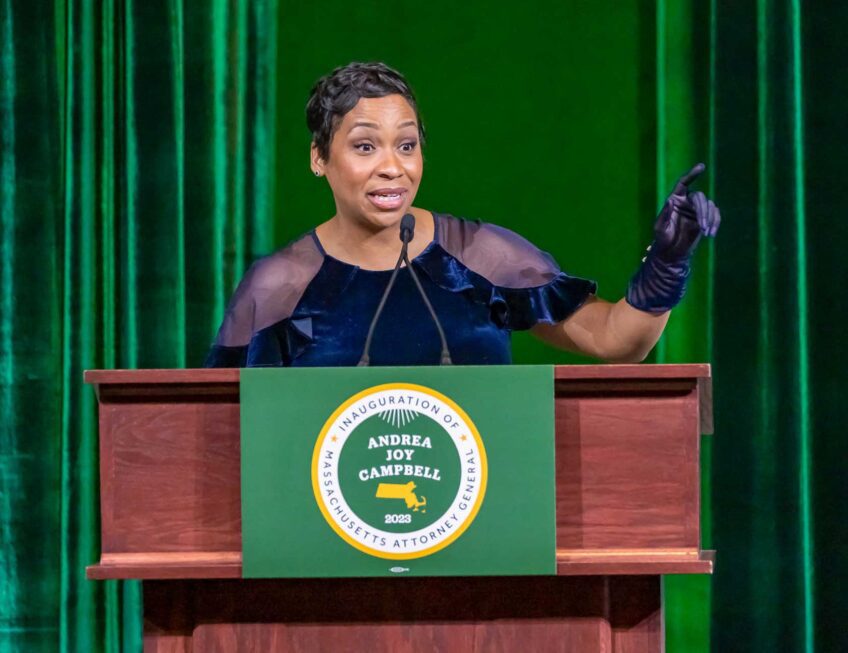
Acting Mayor Kim Janey announced her candidacy for mayor Tuesday morning, releasing a campaign video that depicts her journey on public transit from her Copeland Street home in Roxbury to City Hall, interspersed with clips of past mayoral candidates including Tito Jackson, Charlotte Golar Richie and Mel King.
Unlike the five other candidates running for mayor, Janey, who was sworn in as acting mayor two weeks ago, wields the power of incumbency. Her campaign launch video features footage of her being sworn in and ends with her campaign slogan: “Mayor Janey, our mayor.”
“I’m ready to lead our city,” she says in the three-minute video, which highlights the inequalities facing Boston residents. “To listen. To collaborate. To fight this pandemic and the racial and economic inequalities that COVID only worsened.”
Janey is the fourth woman and fourth city councilor in the race, joining councilors Michelle Wu, Andrea Campbell and Annissa Essaibi George. Also running are state Rep. Jon Santiago and former Walsh administration Chief of Economic Development John Barros.
While she enters the race later than the others — Wu and Campbell announced last year — and she has raised little more than $250,000 in the last six weeks, she has been in the media spotlight as the first Black mayor of the city, including numerous interviews in national news media.
That gives her a leg up on the competition, according to City Councilor Ricardo Arroyo.
“It’s a special moment in history,” he said. “I think she’ll be a strong candidate.”
In Boston, Janey’s position as acting mayor has kept her in the local news outlets as she hosts briefings and media availabilities almost daily, giving her significantly more exposure than the other five candidates.
In a media availability in front of the “Faces of Dudley” mural in Nubian Square, Janey outlined key priorities: an equitable recovery from the COVID pandemic, housing strategies to combat displacement of Boston residents, police reform and public transit improvements.
The themes she hit on echoed those raised by other candidates — but Janey made it clear that from the corner office on the fifth floor of City Hall, she is better positioned to work on those issues immediately, beginning with COVID recovery.
“This recovery is our chance to build a more equitable city for every resident,” she told reporters in Nubian Square. “That means getting our students and teachers back in the classroom safely and tackling the opportunity and achievement gaps that the pandemic has only exacerbated.”
In a press conference last week, Janey joined transit activists pressing the MBTA board to reverse cuts to public transit and announced a pilot project in which a thousand riders receive free MBTA passes and credits for Bluebikes rentals. Janey, who often rides the bus and subway to City Hall, effectively seized the issue of public transit access from Wu, who for more than a year has championed the cause of free MBTA bus fares.
Also last week, Janey announced a city campaign to increase tourism in Boston, an initiative that began under the Walsh administration. Janey grabbed the headlines, while Barros, who was economic chief while the tourism campaign was devised, was left to claim victory on Twitter, where he posted, “Glad to have led this campaign — and to see it moving forward at a time when our city desperately needs it.”
This year’s race, with six candidates identifying as people of color and four of whom are women, is historic in a city where just eight years ago the final race was dominated by white men.
Fatima Ali-Salaam, the president of the Greater Mattapan Neighborhood Council, said the six candidates all draw on considerable experience in government.
“It’s great to have the opportunity to have people who are professionally engaged in city and state government,” she said. “We haven’t had these kind of choices recently.”
To secure victory in the mayoral race, Janey will likely have to rely on the same combination of voters of color and white progressives that helped former mayors Walsh and Menino win their respective races. There’s already significant competition for those votes, with Santiago potentially rallying the Latino vote, Campbell competing for black voters and Wu having secured significant donations in largely white progressive Boston neighborhoods.
“It’s going to come down to their ability to speak a language that communicates with Black people, immigrants and white people — many of whom are worried about being left out,” said state Rep. Nika Elugardo of the mayoral candidates. “All the candidates are great at talking to at least one constituency.”
Tuesday morning, as Janey spoke about her work leading the city through COVID recovery, she underscored a key point in her campaign messaging: the language of incumbency.
“As we recover together as a city, we can’t simply go back to the way things were. Our only option is to go better: a better Boston, a stronger Boston, a more equitable Boston,” she said. “Now, I need to get to work.”







